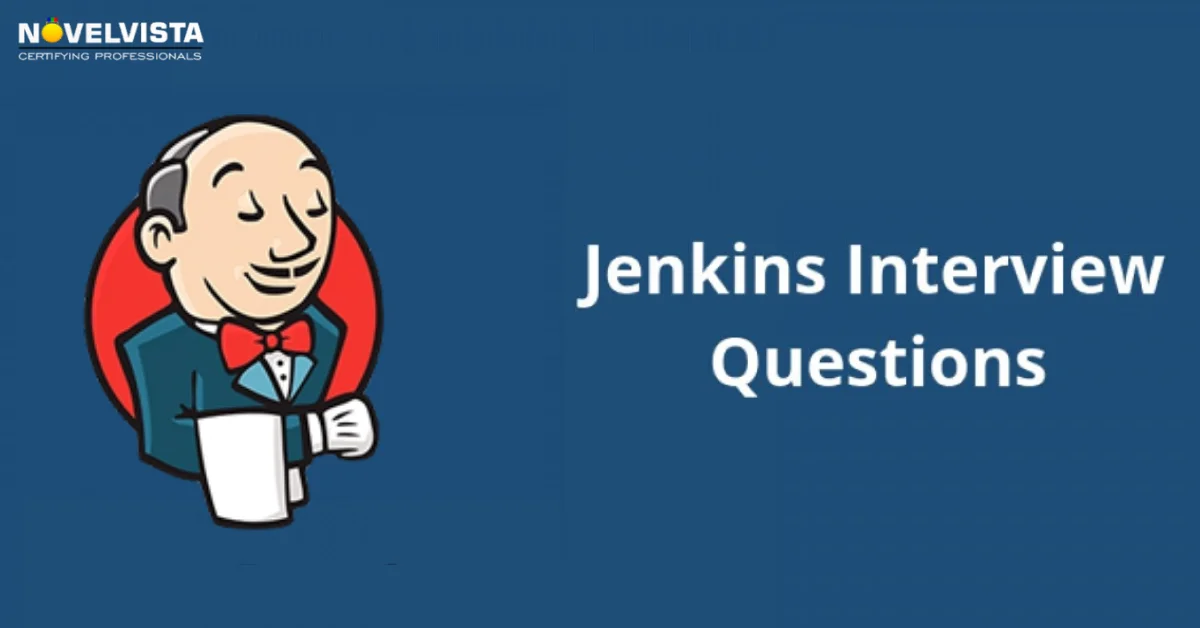Enroll Now and Get Upto 30% Off
* Your personal details are for internal use only and will remain confidential.

Last updated 10/06/2021

Do you have any idea what Jenkins does?
Of course, you do! After all, It is the most useful open-source software that is free! Undoubtedly, all the organization that is rich with DevOps, absolutely love this tool! And why won’t they? It helps automate the parts of software development related to building, testing, and deploying. So it goes without saying, that it contributes in a huge way towards continuous integration and hence, continuous delivery is just a blink of eyes away! Along with that, It supports version control tools, including AccuRev, CVS, Subversion, Git, Mercurial, Perforce, ClearCase, and RTC, and can execute Apache Ant, Apache Maven as well as arbitrary shell scripts and Windows batch commands.
So if you are applying for a DevOps position in any organization, not only you should but you must have some basic knowledge of Jenkins to get selected during the interview. So what do the basics of Jenkins cover? Let’s see from these 20 handpicked Jenkins interview questions from the top organizations:
The software prerequisites that must be met before Jenkins is installed are:
You have to follow these steps to use and configure the third-party tools in Jenkins:
There are two ways to launch a Jenkins node agent:
After launching a Jenkins node agent, it will download a JNLP file. The JNLP will help the launch of a new process on the client machine when it runs.
Each Jenkins build is stored within the XML configuration. After copying a folder, the configuration of all the build jobs managed by the Jenkins master can be backed up. While performing a Jenkins Git integration, you can copy the contents of the folder. The build jobs described in the folder will be restored once you start the Jenkins server next time.
So, the steps in a Jenkins pipeline are:
You need to search for a folder that contains a file named config.xml and change the settings to false for the security to be disabled when Jenkins is started the next time.
Some advantages of Jenkins are:
A few requirements for using Jenkins are mentioned below:
Some of the important plugins that can be used with Jenkins are:
Jenkins job can be set up with these following steps:
Some elements of a freestyle project includes:
To create a backup for files, you need to keep backing up your Jenkins_Home directory regularly including all the build jobs configuration, slave node configuration, and build history. Else, you can copy a job directory to a clone or can rename the directory.
The steps of securing Jenkins are:
Hudson was Jenkins’ previous name when it launched. Since there were some issues with the name for which it was changed from Hudson to Jenkins.
Once you open the console output where the broken build is created, you need to check if there are any file changes that were missed. Once there are no issues in this manner, then you can update your local workspace and replicate the problem and before solving it.
You need to follow these steps to copy or move Jenkins jobs from one server to another:
The steps for scheduling builds in Jenkins are mentioned below:
Important SCM tools that are supported by Jenkins are:
There are 3 ways by which Jenkins can authenticate users –
The following commands can be to start Jenkins manually:
(Jenkins_url)/restart: To force restart without waiting for build completion.
(Jenkin_url)/safeRestart: Waits until all the build gets completed before restarting.
Did any more Jenkins query strike your mind while going through this? Tell us in the comment section below if it did. Or even better, join our DevOps courses to get your all confusions cleared up!
Topic Related PostNovelVista Learning Solutions is a professionally managed training organization with specialization in certification courses. The core management team consists of highly qualified professionals with vast industry experience. NovelVista is an Accredited Training Organization (ATO) to conduct all levels of ITIL Courses. We also conduct training on DevOps, AWS Solution Architect associate, Prince2, MSP, CSM, Cloud Computing, Apache Hadoop, Six Sigma, ISO 20000/27000 & Agile Methodologies.
* Your personal details are for internal use only and will remain confidential.